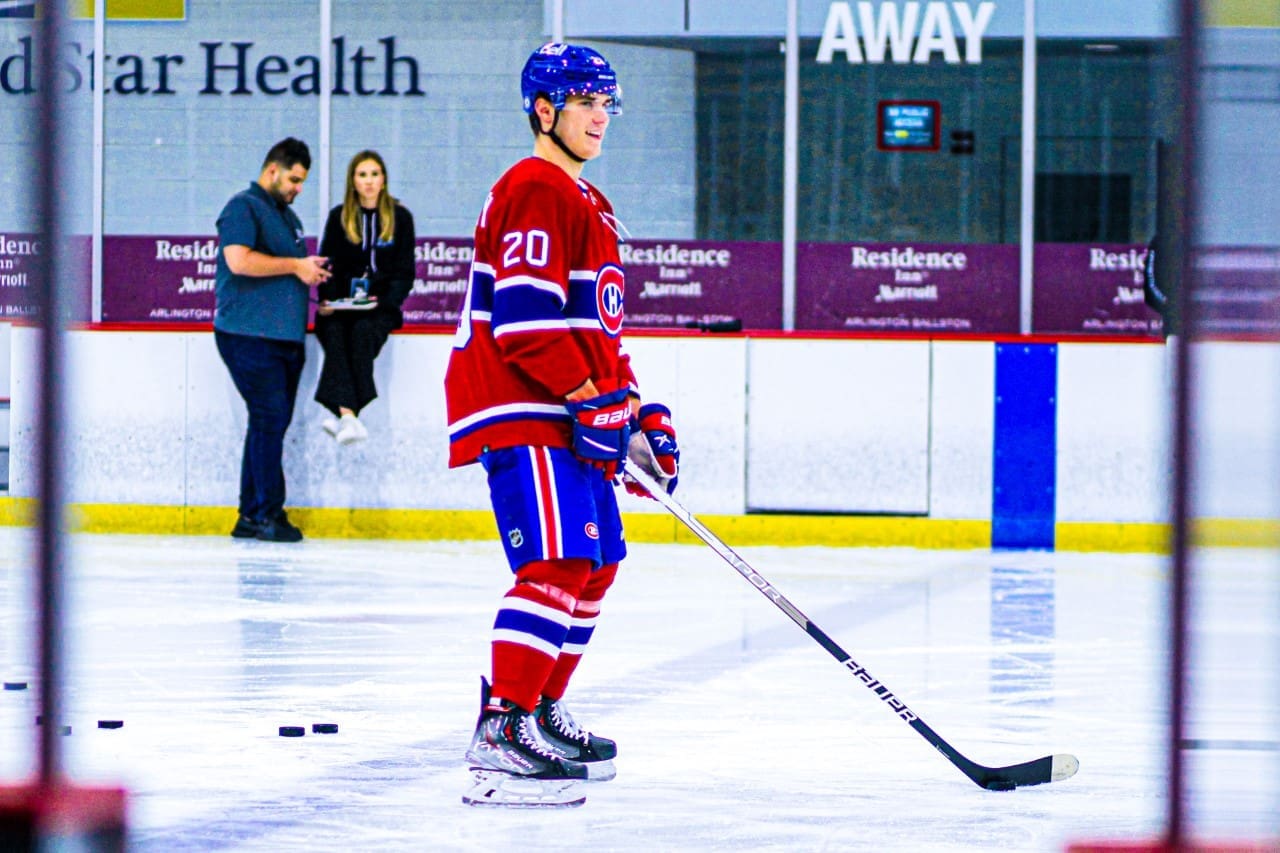Montreal Canadiens
How Injury To Canadiens Juraj Slafkovsky Impacts His Contract

Montreal Canadiens Juraj Slafkovsky is nursing an upper-body injury, and every game he misses impacts his contract status and earning potential.
Being a rookie in the NHL, the current intrigue is fixed on Slafkovsky playing more than nine games with the Canadiens. The day Slafkovsky suits up for his 10th game of the NHL season, his three-year entry-level contract will officially begin and he will burn the first year of his contract. This rule is commonly referred to as the “Contract Slide Rule”.
Reaching ten games in the NHL seems like a formality at this point, be it in the next month or down the line during the season, there is another game threshold that could impact Slafkovsky’s contractual status.
Free Agency Timer
This next threshold referred to as the “free agency counter”, directly impacts when Slafkovsky can become an unrestricted free agent (UFA) in the future. A player can become an unrestricted free agent after they’ve accrued seven seasons of NHL experience or are 27 years of age and older, per section 10.1 (a) of the NHL‘s CBA:
“Any player who either has seven (7) accrued seasons or is 27 years of age or older as of June 30 of the end of a league year, shall, if his most recent contract has expired, with such expiry occurring either as of June 30 of such league year or June 30 of any prior league year, become an Unrestricted Free Agent.”
According to the NHL, a season is accrued when a player is on a club’s active roster for 40 or more regular season games for skaters and 30 or more for goaltenders. This means that, if Slafkovsky were to be on the active roster for more than 40 games next season, he would be eligible to become an unrestricted free agent in the summer of 2030 at age 25. However, if he were to split time between Montreal and Laval and play less than 40 NHL games during the 2022-2023 season, he would not have accrued a season and would thus delay his ability to become a UFA by a year; bringing us to 2031.
But There’s A Catch
Unlike the Contract Slide rule, Slafkovsky doesn’t have to play 40 games to accrue a season and start his free agency counter; he simply needs to be on the active roster. This means that, although he’s only played five games so far, the Montreal Canadiens’ sixth game of the season, which he missed due to an upper-body injury, still counted towards his 40-game limit. Here is the definition of an Accrued Season below, which sheds light on the matter:
“Accrued Season” means any League Year during which a Player was on a Club’s Active Roster for 40 (30 if the Player is a goalie) or more Regular Season Games, provided that, for the purposes of calculating an Accrued Season under this Agreement, games missed due to a hockey-related injury incurred while on a Club’s Active Roster shall count as games played for purposes of calculating an Accrued Season but only during the League Year in which the injury was incurred and a maximum of one additional season.”
The important part of this definition is the “games missed due to a hockey-related injury while on a club’s active roster”.
Here’s a quick example. Remember how Kirby Dach suffered an unfortunate injury at the 2021 Worl Junior Championships that limited him to just 18 games during the 2020-2021 season? Because that injury occurred before the start of the NHL season, Dach’s games lost to injury did not factor into the count of 40 games played, and it was not considered an accrued season, thereby delaying his free agency status to July 2027.
Montreal Canadiens Will Monitor The Situation
Because Slafkovsky was injured during the regular season, his games lost to injury still count toward his limit.This means that, the longer this injury drags on the closer Slafkovsky will get to starting his free agency counter without having played those 40 games.
Furthermore, the Montreal Canadiens cannot assign Slafkovsky to the Laval Rocket without having him return to health first.
There’s also a keen eye on his Performance Bonuses which can go as high as 1M$ for “A” Level bonuses, and $2.5M in “B” Level bonuses, for a total of $3.5M if he attains each incentive. Any performance bonus earned will carry over to the Montreal Canadiens’ 2023-2024 cap count, as they cannot stack bonuses to their current cap structure while using Long-Term Injury Reserve space.
These are all certainly facets the Montreal Canadiens will keep in mind as they decide what to do with the youngster’s development this season. Word has come out that general manager Kent Hughes would like Juraj Slafkovsky to spend some time with the Laval Rocket this season, so it remains to be seen how Slafkovsky’s health will impact their decisions.










